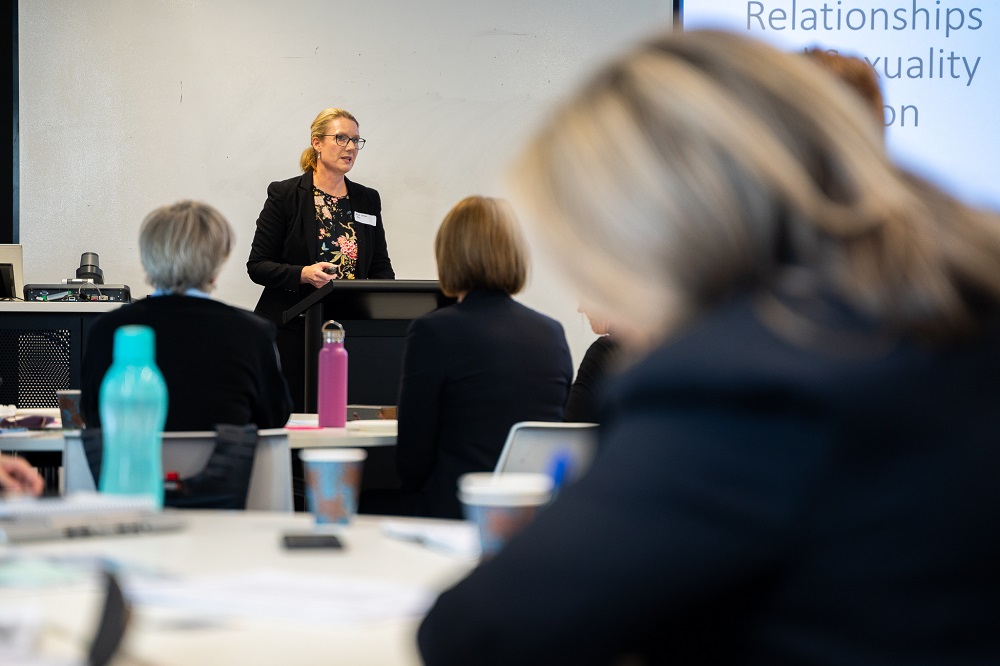Danielle Meddemmen
21 July 2021: The ACT’s education providers are collaborating on an important conversation to support teachers, including pre-service teachers, in their practice of teaching respectful relationships and consent education in the region’s schools.
The University of Canberra and the Education Directorate hosted representatives from public, Catholic and independent education providers at the event, which was held at the University’s Inspire Centre.
The all-day event, championed by the University’s Executive Dean of Education, Professor Barney Dalgarno, included keynote speakers and a spotlight session to identify the sector’s top priorities.
“The aim of this event is to develop a deeper understanding of the key issues in this teaching space, by working with all of the stakeholders involved,” Professor Dalgarno said.
“The collaboration is a collective commitment to scrutinise our curricula and teaching practices, and to work towards improvements by addressing the key issues.”
School and University students were also invited to attend the roundtable event, to consider the practices of respectful relationships and consent education and to articulate the support they need in delivering that education.
The keynote address: Ignorance is not Innocence – Safeguarding sexual wellbeing through relationships and sex education was delivered by Katrina Marson, a criminal lawyer specialising in gendered issues and sexual violence prevention.
Fellow University of Canberra academic and education lecturer, Dr Michael Davies, explains why the topic is an important one to broach.
“Despite the tremendous work of individuals, institutions and organisations to revolutionise change, stigma, taboo and cultural behaviours remain embedded in the fabric of our society whether or not we choose to acknowledge and accept them,” he said.
“These conversations, and a systematic response, are therefore vital if true generational change is to occur.”
Dr Davies currently delivers specialised units for the University’s Bachelor of Primary Education, and Bachelor of Primary and Secondary Health and Physical Education degrees.
“By presenting all the facts and different perspectives, we will empower school students to make their own informed decisions to build health relationships, a sense of identity, resilience and confidence, which the Australian Curriculum intended,” he said.
“This will be achieved by developing competency in our pre-service teachers’ content and pedagogical knowledge through evidence-based practice during on-campus workshops and placement experience.”


